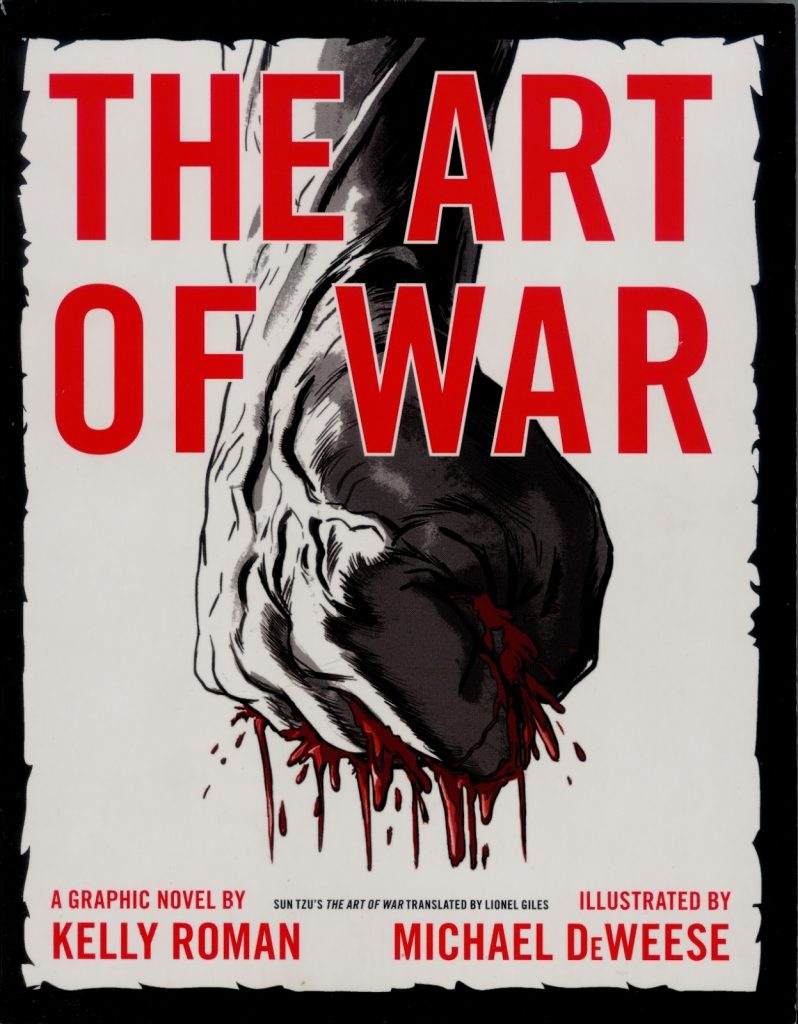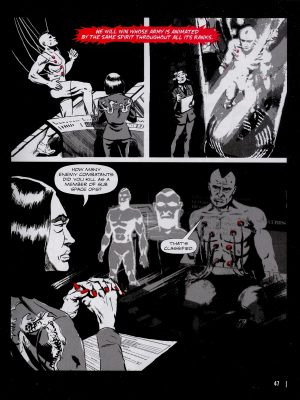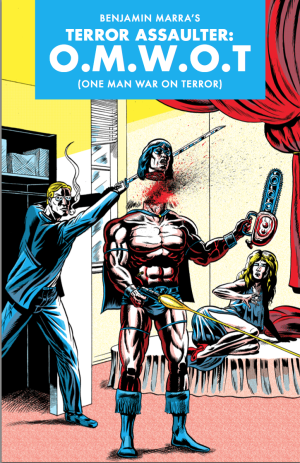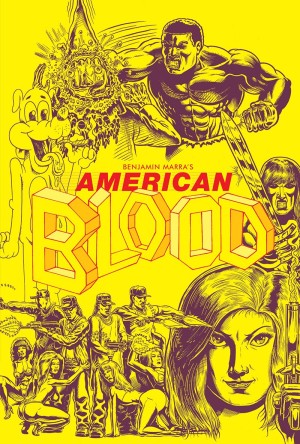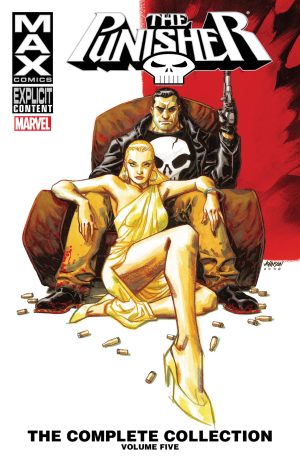Review by Ian Keogh
This is quite the oddity, and Kelly Roman has some imagination for taking Sun Tzu’s 5th century Chinese manual about wartime strategy and bumping it 1500 years into the 21st century, but a few decades beyond the present day when China is the undisputed global power. It’s told in the first person, the author using his own name, casting himself as a soldier returning to the family home after being released from jail, his sentence being for accidentally maiming the woman he served with and loved. His options become reduced to employment by the Trench Corporation, the people his brother worked for when he died, and run by one Sun Tzu.
There’s no glamour to Michael DeWeese’s art, but it conveys the brutality of the story, the times and the participants. There are other connections with Frank Miller’s Sin City, not least the use of red as a single highlighting colour, with blood the most common appearance, although DeWeese is far less accomplished than Miller when it comes to storytelling, preferring images to continuity. The explicit cruelty shown detracts from DeWeese not being as capable when defining people. It’s possible to go through the entire 400 pages and still not be able to pick Roman out of a police line-up.
Using a 1910 translation of Sun Tzu’s work, Roman applies the principles to his story. Tzu advocates treated captured people well and absorbing them into your larger army, and the Trench Corporation has managed something similar in corporate terms while acquiring the American medical system. Roman becomes one of Tzu’s interns.
While the idea of applying Tzu’s advice to future warfare is novel, Roman has to force Tzu’s ideas around scenes to move his own story forward, and eventually the succession of violent incidents fail to resonate. Roman is inventive in introducing creatively conceived advanced technology, often explained at great length, but rarely actually having any bearing on what’s happening. When they are introduced, though, they have an impact, such as the way body armour and weapons are smuggled into a secure corporation.
Ultimately Tzu’s thoughts about warfare remain interesting and largely relevant, while the story Roman sets around them doesn’t have the same fascination, and the basic artwork drags it further down.
